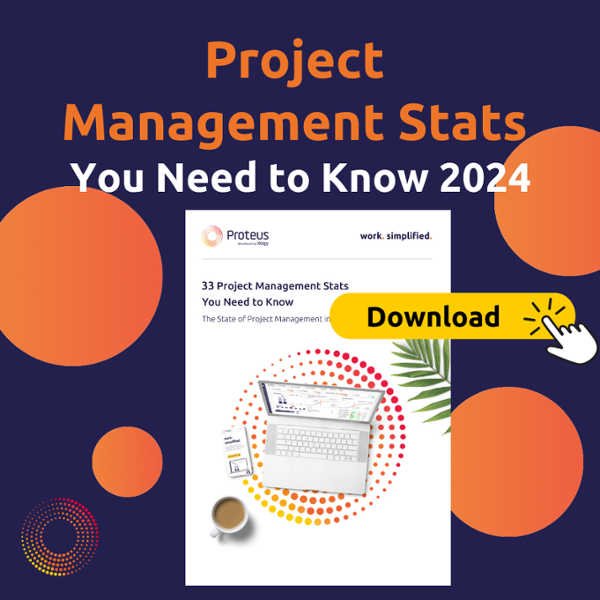Project performance assessment is an intrinsic part of the project management process. Assessing project performance enables you to determine how well you are managing the project, and how likely you are to get the desired results as per the timeline and budget specifications.
Project managers need to determine and keep track of the core project performance assessment and measurement metrics to ensure seamless project completion.
In this article, we are going to walk you through the project performance assessment process and some guidelines for business leaders for measuring project performance in real-time.
Why is Project Performance Assessment Important?
Project managers have the responsibility to ensure the successful completion of assigned projects, on time and on budget. And for that, they need to keep track of the project performance throughout the development process.
Project performance assessment is backed by a set of agreed standards set in place by the project stakeholders.
By analyzing the established project success landmarks and milestones, you can ensure your whole team stays on track.
And if you are finding it hard to meet the specified goals, you can fine-tune your project management process to improve the areas where you and your team are falling short.
It all starts with effective project performance assessment. Assessing performance effectively is essential for project managers who want to stay on top of the project development operations.

Assessing Project Performance in Real Time
- Set Milestones
Every project has a schedule baseline (or a point of reference to compare progress with). It can be a single deadline or a set of milestones that you need to achieve as per an agreed-upon schedule. Setting milestones enables you to figure out what to expect from the rest of the project.
If your team is not meeting the established milestones, this indicates that you need to improve some area of performance to make up for the slippage.
- Productivity Review
Project performance assessment requires you to keep track of the overall productivity standards in your team. The best way to gauge productivity is to look at the achieved goals. One of the metrics for measuring this in complex projects is earned value. Using project software that automatically manages this calculation simplifies the process of evaluating productivity levels.
If you are constantly reaching your goals, then you are most likely following positive productivity standards. If there is a lag in meeting project milestones, then it would be highly likely that your resources are not being utilized to their maximum potential.
- Quality Review
Quality assurance is a valuable process for determining project performance in terms of the quality delivered, as well as the effectiveness of the project management processes.
If the deliverables are as per client expectations, your project management processes are going in the right direction. If the quality of the deliverables seems below what has been contractually agreed, it’s an indication for you to make changes in your process.
- Budget Analysis
Cost management is one of the most important factors for successful project managers. Every project has an established cost baseline.
The process of budget analysis requires you to compare your current total expenses with the overall project budget that was specified by the stakeholders. This will tell you how your project is performing financially.
- ROI Analysis
The ROI analysis helps you determine the possibility of gaining a positive return on your investment at the end of the project. If the result helps enhance the ROI, then it suggests that your project management process has been delivered as per expectations.
If there is a discrepancy between the investment and the returns, then it suggests a change in strategy for the project development process.
- Stakeholder Satisfaction
Your stakeholders can be of key importance when it comes to assessing project performance. You can ask them to rate the current project performance out of 10. You can also ask them to recommend any changes in the process that they think would make things better.
Evaluating stakeholder satisfaction throughout the project development phase can give you insights into the outlook of the entire process. It can also introduce you to the ways you can do things differently, to get better results.
Tips for Improving Project Performance
- Set Realistic Goals
You need to establish milestones for the entire project and set up an accountability system to keep things on track for yourself and your team. Keeping the desired project outcomes at the back of your mind can help keep the team motivated during the project execution phase.
- Conduct Thorough Research
Every project requires extensive research to figure out the best way to complete it in record time. You’d need to conduct extensive research to come up with reliable strategies and realistic deadlines for the project.
- Calculate Cost Estimation
Allocation of financial resources can help you avoid going over the specified budget. When you are aware of the cost estimation, you feel compelled to finish the project as per the defined financial constraints.
- Get Feedback from Stakeholders
You can establish feedback-gathering processes in your project management activities to see how they are feeling about the project. The feedback from stakeholders can help you get valuable insights to improve the project’s performance.
- Use Project Management Tools
You can use project management tools such as Proteus to assess project performance. Proteus comes with built-in Project Controls that enable you to stay on top of your project performance. The benefits are wide-reaching: well-managed project resources can also have a positive impact on your environmental sustainability.

About Proteus Project Software
Xergy Group’s Proteus project management software is designed to work with your existing systems and to scale and evolve as your business grows. Created by project management leaders, for the diversified engineering consultancy sector, Proteus delivers an end-to-end work management software platform with detailed workflows from the early opportunity stage through to project delivery.
Proteus’ end-to-end project management software is a cloud-based system designed for businesses of all sizes to handle projects of unlimited complexity and is compliant with common project management frameworks and ISO standards. Each feature is aimed at making bottom-line improvements by improving utilisation, streamlining workflows, providing quick and efficient access to resources, and reducing overheads. Check out some of our client case studies to learn more about how Proteus makes a tangible difference.
How to get Proteus
We recommend getting setup on a free trial. Proteus operates under a software-as-a-service (SaaS) model. We offer Enterprise packages and flexible pricing solutions: contact our team to learn more.
We designed Proteus to be simple, and that means you can get up and running on Proteus without an IT team or support from a programmer. You will want to spend a bit of time configuring the admin console so that you have everything set up to suit your company structure, but it’s very intuitive and you don’t need a PhD in IT. However, we want you to get the best out of what is a brilliantly powerful tool, so don’t hesitate to ask for our support. We have a team of product experts who are ready to help you with the configuration process, so get in touch today by filling out the form below:



